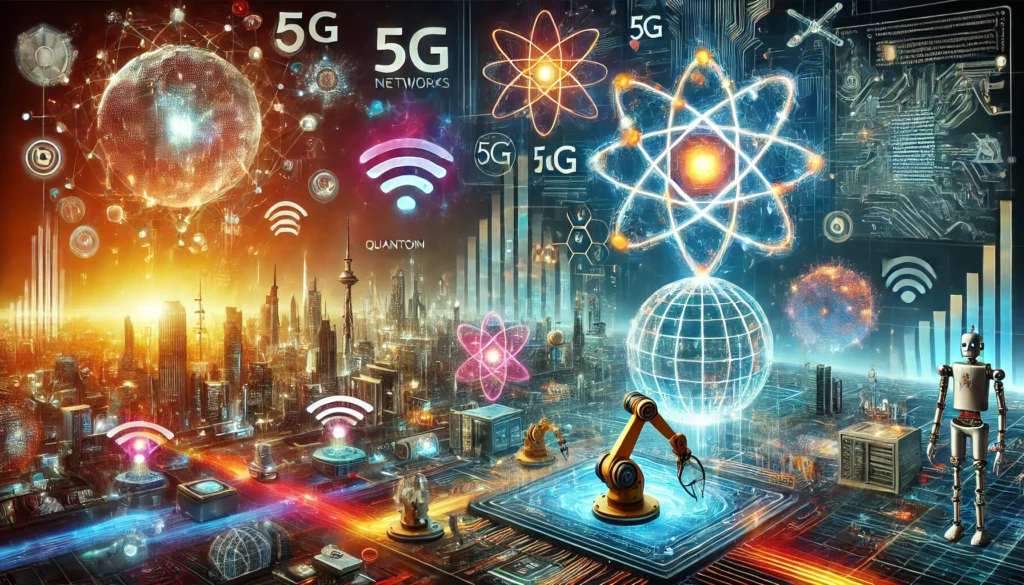Technology has become the backbone of modern civilization, transforming how we live, work, and interact with the world around us. From the devices in our hands to the software that powers them, every element of our lives is influenced by technological advancements. The number “2131953663” might appear random at first glance, but it symbolizes the broad spectrum of innovations across numerous sectors, encapsulating the immense potential of technology to shape the future. This article delves into key aspects of technology, its evolution, current trends, and potential future breakthroughs.
The Evolution of Technology
Early Beginnings
Technology, in its simplest form, has been part of human existence since the beginning of time. Early humans developed basic tools to survive and thrive in their environment, marking the first steps toward technological evolution (2131953663). The creation of the wheel, the discovery of fire, and the invention of early tools are just a few examples of humanity’s early technological innovations.
The Industrial Revolution
The Industrial Revolution (1760-1840) marked a significant shift in technological progress. It was a period of massive change where mechanization took over manual labor, and industries began mass-producing goods. Steam engines, the spinning jenny, and the power loom revolutionized production processes, laying the foundation for the technological landscape we see today (2131953663). This era sparked innovations that led to modern-day transportation, communication, and manufacturing.
The Digital Revolution
The late 20th century saw the birth of the Digital Revolution, where digital technology took center stage. The introduction of personal computers, the internet, and mobile devices drastically altered daily life. The advent of microprocessors, data storage solutions, and networking technologies enabled companies to automate and innovate in ways previously unimaginable (2131953663). This revolution also paved the way for the tech giants we know today, such as Apple, Microsoft, and Google.
Key Areas of Technological Advancement
Artificial Intelligence (AI)
AI represents one of the most transformative technologies of the 21st century. It refers to the simulation of human intelligence in machines that are programmed to think, learn, and make decisions. AI technologies, such as machine learning, natural language processing, and robotics, have become increasingly integral to various industries, including healthcare, finance, and transportation – 2131953663.
Machine Learning and Data Science
Machine learning is a subset of AI that enables computers to learn from data and improve their performance over time without being explicitly programmed. This technology has been instrumental in enhancing areas like personalized medicine, autonomous vehicles, and fraud detection in financial transactions.
Robotics and Automation
Robotics and automation have revolutionized industries such as manufacturing, healthcare, and logistics. Robots equipped with AI can perform complex tasks with precision and efficiency. In healthcare, surgical robots assist in delicate procedures, while in factories, robotic arms streamline production lines, reducing human error and boosting productivity – 2131953663.
Internet of Things (IoT)
The Internet of Things (IoT) refers to the network of interconnected devices that collect and share data. From smart homes to industrial automation, IoT is reshaping how we interact with the environment. The technology allows devices like refrigerators, thermostats, and even cars to communicate with each other, creating a more efficient and connected world.
Smart Homes and Cities
IoT has made significant inroads in the home and urban infrastructure sectors. Smart home devices, such as security systems, lighting, and heating controls, provide homeowners with remote access and automation. Similarly, smart cities leverage IoT to optimize public services, including traffic management, waste collection, and energy distribution.
Industrial IoT (IIoT)
In industries, IoT has improved operations by enhancing monitoring and maintenance. IIoT allows machines to communicate with each other, providing real-time data that helps prevent breakdowns and optimize performance. This technology has become essential in manufacturing, energy, and agriculture sectors.
5G Connectivity
5G is the fifth generation of mobile network technology that offers faster speeds, lower latency, and more reliable connections than previous generations. The introduction of 5G technology is expected to revolutionize several industries by enabling faster communication, real-time data transmission, and enhanced mobile experiences.
Impact on Communication and Entertainment
The rollout of 5G is set to enhance communication by providing higher-quality video calls, faster internet browsing, and smoother streaming services. In the entertainment industry, it will enable immersive experiences such as virtual reality (VR) and augmented reality (AR), opening up new avenues for gaming and digital media.
Autonomous Vehicles
5G’s low latency and fast data transfer capabilities make it crucial for the development of autonomous vehicles. Self-driving cars rely on real-time data to navigate roads safely, and 5G enables the near-instantaneous communication needed for these vehicles to operate effectively.
Blockchain and Cryptocurrencies
Blockchain technology, the underlying framework for cryptocurrencies like Bitcoin, is a decentralized ledger system that ensures transparency, security, and immutability in transactions. While blockchain is most commonly associated with financial applications, its potential extends far beyond that.
Financial Sector
Cryptocurrencies have disrupted the financial sector by offering an alternative to traditional banking systems. Decentralized finance (DeFi) platforms, built on blockchain, allow users to lend, borrow, and trade assets without intermediaries like banks. This has led to increased financial inclusion and innovation in payment systems.
Beyond Finance: Blockchain Applications
Blockchain technology is being adopted in various sectors, including healthcare, supply chain management, and voting systems. In healthcare, blockchain ensures the secure transfer of patient records, while in supply chains, it enhances transparency and reduces fraud. In the political arena, blockchain-based voting systems promise to enhance electoral security and trust.
Quantum Computing
Quantum computing is an emerging field of computing that harnesses the power of quantum mechanics to perform calculations at unprecedented speeds. Unlike classical computers that use bits, quantum computers use quantum bits or qubits, allowing them to process vast amounts of data simultaneously.
Applications in Science and Medicine
Quantum computing has the potential to revolutionize industries like pharmaceuticals and materials science by speeding up complex simulations and calculations. For instance, it could enable the discovery of new drugs and materials by simulating molecular interactions more accurately than traditional computers.
Cryptography and Security
Quantum computers also pose a threat to current cryptographic methods, as they could potentially break encryption codes that protect sensitive information. However, quantum cryptography is also being developed to create more secure communication systems.
Ethical Considerations in Technology
Data Privacy
As technology becomes more integrated into our lives, concerns about data privacy have increased. Companies collect vast amounts of data from users, which raises questions about how this data is used and who has access to it. The implementation of data protection regulations, such as the General Data Protection Regulation (GDPR) in Europe, aims to address these concerns by giving individuals more control over their data – 2131953663.
AI and Job Displacement
While AI and automation offer numerous benefits, they also raise concerns about job displacement. As machines become more capable of performing tasks traditionally done by humans, there is a risk that certain jobs may become obsolete. It is crucial to strike a balance between technological innovation and the human workforce by focusing on reskilling and upskilling programs.
Cybersecurity
With the increasing reliance on digital technology, cybersecurity has become a top priority for businesses and governments alike. Cyberattacks, data breaches, and ransomware pose significant threats to the integrity of digital systems. Organizations must invest in robust cybersecurity measures to protect sensitive information and maintain trust in digital platforms.
The Future of Technology
Artificial General Intelligence (AGI)
While current AI systems are capable of performing specific tasks, the development of Artificial General Intelligence (AGI) could lead to machines that possess human-like intelligence. AGI would be able to learn, reason, and solve complex problems across various domains, potentially transforming industries and society.
Human Augmentation
Human augmentation refers to the use of technology to enhance human physical and cognitive abilities. This could include anything from wearable devices that monitor health to brain-computer interfaces that allow humans to control machines with their minds. The future of human augmentation holds the promise of extending human capabilities beyond natural limits – 2131953663.
Renewable Energy Technologies
Sustainability is a growing concern, and advancements in renewable energy technologies are critical for addressing environmental challenges. Solar, wind, and battery technologies are expected to become more efficient and cost-effective, reducing our dependence on fossil fuels and helping combat climate change.
Space Exploration and Colonization
Technology is driving humanity’s exploration of space, with private companies like SpaceX and Blue Origin leading the charge. The development of reusable rockets, advanced propulsion systems, and life support technologies will enable humans to explore distant planets and potentially establish colonies beyond Earth.
Conclusion
Technology is a constantly evolving force that shapes our world in profound ways. From AI and IoT to blockchain and quantum computing, the advancements in technology offer limitless possibilities for the future. As we continue to innovate, it is essential to consider the ethical implications and ensure that technology benefits all of humanity. Whether it’s enhancing our daily lives through smart devices or pushing the boundaries of what is possible with quantum computing, technology is undoubtedly the key to a brighter and more connected future – 2131953663.
Frequently Asked Questions (FAQs)
1. What is the most significant technological advancement of the 21st century?
The development of artificial intelligence (AI) and machine learning is considered one of the most significant advancements, transforming industries such as healthcare, finance, and manufacturing.
2. How does 5G technology differ from previous generations of mobile networks?
5G offers faster speeds, lower latency, and higher capacity compared to 4G, enabling real-time data transmission, better connectivity, and support for technologies like autonomous vehicles and smart cities.
3. What are the potential applications of quantum computing?
Quantum computing can revolutionize fields such as drug discovery, materials science, and cryptography by performing calculations much faster than classical computers.
4. How does blockchain technology ensure secure transactions?
Blockchain uses a decentralized ledger system where all transactions are recorded across
a network of computers. This makes it transparent, immutable, and secure, preventing unauthorized tampering.
5. What ethical concerns are associated with AI and automation?
Key concerns include job displacement due to automation, privacy issues related to data collection, and the potential misuse of AI for surveillance or malicious purposes.
6. How can IoT improve urban living?
IoT enables smart cities by optimizing resources like energy, water, and transportation. It improves public services through real-time monitoring and management systems, enhancing overall efficiency and sustainability.
Click Here For More Stories







